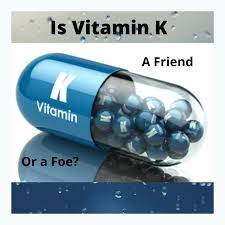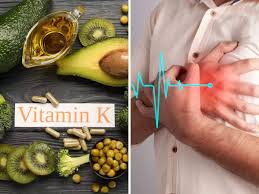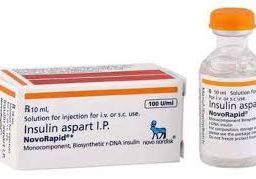
Vitamin K Health Benefits: Boost Bone and Heart Health
Vitamin K, often overlooked but incredibly important, is a key nutrient vital for maintaining our health. From supporting blood clotting to enhancing bone strength, its benefits are profound. Let’s delve into the wonders of Vitamin K and why it’s crucial for our well-being.

When it comes to maintaining optimal health, we often focus on vitamins like A, C, and D. However, there is another crucial nutrient that plays a vital role in our well-being: vitamin K. Despite being less talked about; it is an essential nutrient with a range of significant effects on the body.
Understanding Vitamin K:
It is a fat-soluble vitamin that exists in two primary forms: vitamin K1 (phylloquinone) and vitamin K2 (menaquinone). Vitamin K1 is found in green leafy vegetables like kale, spinach, and broccoli, while vitamin K2 is produced by certain bacteria in our gut and is present in fermented foods and animal products.
Blood Clotting and Bone Health:
One of the most well-known roles of vitamin K is its involvement in blood clotting. It plays a crucial part in the activation of proteins responsible for clotting, preventing excessive bleeding and promoting wound healing. Deficiency in this vitamin can lead to bleeding disorders and an increased risk of hemorrhage.
Additionally, it is essential for maintaining healthy bones. It works in synergy with other nutrients like calcium and vitamin D to regulate bone mineralization. It activates osteocalcin, a protein that helps bind calcium to the bone matrix, thus promoting bone strength and reducing the risk of fractures.
Cardiovascular Health:

Emerging research suggests that vitamin K may have a significant impact on cardiovascular health. Vitamin K2, in particular, has been associated with a reduced risk of cardiovascular disease. It helps prevent the accumulation of calcium in the arteries, which can lead to arterial stiffness and increase the risk of heart attacks and strokes. By inhibiting arterial calcification, vitamin K2 promotes cardiovascular health and supports overall heart function.
Cognitive Function:
Recent studies have also highlighted the potential role of vitamin K in brain health. Some researchers believe that it may help protect against age-related cognitive decline and neurodegenerative diseases like Alzheimer’s. While the exact mechanisms are still being explored, it is thought that vitamin K’s anti-inflammatory and antioxidant properties play a role in supporting brain health.
Anti-inflammatory Effects:
Inflammation lies at the root of many chronic diseases, including arthritis and certain cancers. Vitamin K possesses anti-inflammatory properties that can help mitigate inflammation in the body. By reducing the production of pro-inflammatory molecules, it may contribute to the prevention and management of these conditions.
Sources of Vitamin K
To ensure an adequate intake of vitamin K, it is important to incorporate various food sources into our diets. Good sources of vitamin K1 include dark leafy greens (spinach, kale, Swiss chard), broccoli, Brussels sprouts, and green peas. Vitamin K2 can be found in fermented foods like natto (fermented soybeans), sauerkraut, and certain cheeses. Animal products such as egg yolks, liver, and meat also contain vitamin K2.
If necessary, supplementation can be considered under medical supervision, especially for individuals with specific health conditions or those on long-term antibiotic use.
While this vitamin may not receive as much attention as other vitamins, its impact on our health should not be underestimated. By incorporating vitamin K-rich foods into our diets, we can ensure we have an adequate intake of this mighty nutrient, promoting optimal health and reducing the risk of associated health conditions.

Vitamin K, often overshadowed by its more famous counterparts, plays a remarkable role in our bodies. From aiding in blood clotting to supporting bone health, cardiovascular well-being, and cognitive function, this unsung hero delivers a range of benefits. By ensuring an adequate intake through a balanced diet and potentially considering supplementation when needed, we can harness its profound effects to optimize our overall health. Let us not overlook this mighty nutrient, the unassuming powerhouse working tirelessly behind the scenes to keep our bodies in harmony. So, let’s make this vitamin a valuable part of our wellness journey!
Disclaimer: The information provided in this content is for general informational purposes only. It is not intended as medical or healthcare advice, diagnosis, or treatment. Always seek the advice of a qualified healthcare professional with any questions you may have regarding a medical condition or healthcare decisions.
















